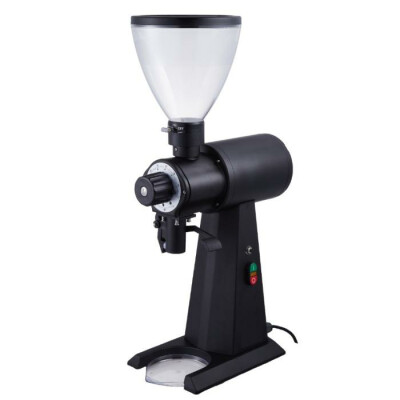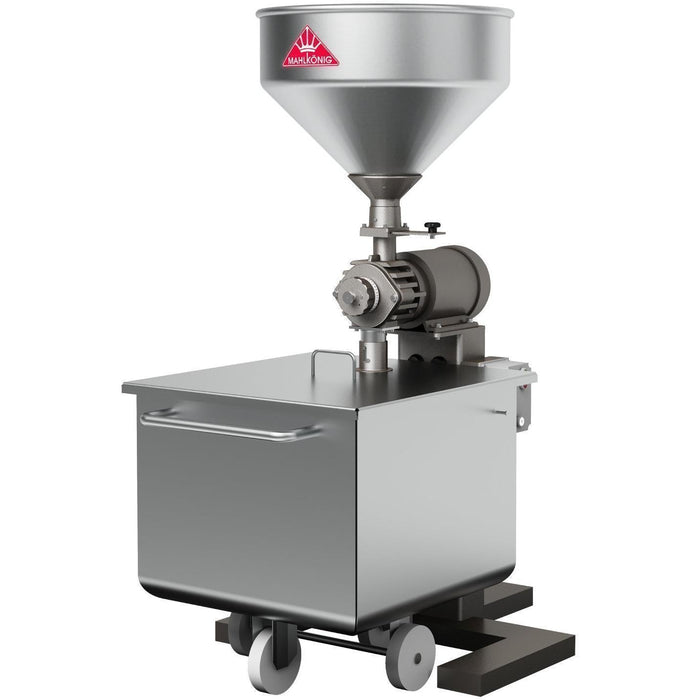Industrial Coffee Grinder vs. Domestic Grinder: Important Distinctions Explained
Industrial Coffee Grinder vs. Domestic Grinder: Important Distinctions Explained
Blog Article
Industrial Coffee Grinder Guide: Increase Effectiveness and Top Quality
In the affordable landscape of coffee manufacturing, choosing the appropriate industrial coffee mill plays a pivotal function in enhancing both effectiveness and item quality. Comprehending the nuances of various grinder kinds and vital features-- such as adjustable grind setups and durable construction-- can significantly affect the last taste profile of the coffee. Additionally, the optimization of the grinding process, paired with diligent maintenance, is necessary for sustaining efficiency in time. As we discover these vital aspects, it comes to be obvious that the ramifications expand beyond mere tools choice, affecting general service success in manner ins which require closer assessment.
Understanding Mill Types
When picking a commercial coffee grinder, understanding the numerous types available is critical for enhancing both flavor removal and operational effectiveness. The two key sorts of mills are blade mills and burr mills. Blade grinders use sharp blades that chop coffee beans right into irregular dimensions, bring about unequal removal and potentially unwanted flavors. While blade grinders are frequently much more cost effective and suitable for small-scale operations, they are generally not suggested for commercial usage.

Ultimately, picking the right kind of grinder is important to maintaining high quality and performance in coffee production, making it important for organizations to purchase top notch burr grinders for ideal outcomes.
Trick Features to Think About
Picking an industrial coffee mill calls for mindful consideration of a number of crucial attributes that can considerably affect both efficiency and the overall coffee experience. One of the main elements to review is the grinding mechanism. Burr grinders are typically liked over blade mills, as they give a consistent grind size, which is vital for optimum extraction and flavor.
An additional essential attribute is the grinder's capacity. Depending on the volume of coffee you need to process, choose a model that can handle your requirements without compromising speed or quality. Furthermore, think about the work setups used. A functional mill with several setups enables you to tailor the grind size to various developing approaches, boosting the coffee's taste profile.
Assess the mill's noise degree, especially in an active café or manufacturing environment, where excessive noise can be turbulent. Spending in a grinder that stabilizes these features can considerably enhance both functional performance and the high quality of the coffee offered.
Optimizing Grinding Process
To attain the best outcomes in coffee prep work, optimizing the grinding process is vital. The work dimension dramatically influences extraction, flavor, and overall top quality of the made coffee.


Additionally, keeping an eye on the grinding rate can enhance the procedure. Slower grinding commonly generates much less warm, maintaining fragile tastes and scents. On the other hand, quicker grinding may produce extreme heat, negatively impacting the coffee's quality.
Upkeep and Treatment Tips
Correct upkeep and care of industrial coffee grinders are essential for ensuring optimum efficiency and durability. Routine cleaning is the foundation of upkeep; deposit accumulation can impact flavor and grinding performance. It is suggested to cleanse the grinder after each use, cleaning down the outside and eliminating any type of coffee grounds from the burrs.
In addition, inspect the grinding burrs for wear and tear. Dull burrs can over here compromise work uniformity, so they need to be changed as necessary. Industrial Coffee Grinder. Periodically adjusting the mill is likewise essential, as this preserves the desired grind size for numerous developing approaches
Lubrication of relocating components ought to be performed according to the maker's requirements, as this decreases rubbing and prolongs the life of the equipment. It is important to make use of food-grade lubes to make sure security and compliance with health and wellness guidelines.
Lastly, maintain the grinder in a stable and dry environment to avoid corrosion and deterioration. By adhering to these maintenance and treatment suggestions, operators can improve the effectiveness of their industrial coffee grinders while making certain top quality output and prolonged operational life.
Roi Evaluation
Assessing the return on investment (ROI) for industrial coffee mills is crucial for companies seeking to maximize their coffee manufacturing capacities. A detailed ROI analysis assists figure out the economic practicality of purchasing premium mills, enabling businesses to consider the first expenses against potential gains.
To conduct a comprehensive ROI website link evaluation, services need to think about a number of vital variables. First, analyze the acquisition price of the mill, consisting of setup and any needed adjustments to existing infrastructure. Next off, calculate operational expenses, consisting of power usage, maintenance costs, and labor effectiveness improvements. High-performance grinders usually result in minimized grinding time and boosted throughput, which can significantly improve efficiency.
Additionally, consider the effect on item high quality. Industrial Coffee Grinder. Superior grinders yield a more regular grind dimension, which can boost flavor accounts and consumer contentment, eventually driving sales. By enhancing the top quality of the final product, companies can justify higher pricing, causing enhanced earnings
Final Thought
In recap, an industrial coffee mill plays a pivotal function in boosting both effectiveness and item quality within coffee production. By picking top notch burr grinders furnished with essential functions such as flexible work settings and long lasting building, companies can ensure optimal taste removal. Routine upkeep is essential for maintaining mill efficiency and maximizing customer complete satisfaction. Eventually, the critical financial investment in a reliable grinder contributes considerably to enhanced income and competitiveness in the coffee market.
In the competitive landscape of coffee manufacturing, picking the ideal commercial coffee grinder plays a critical role in enhancing both performance and item high quality. The two primary kinds of mills are blade grinders and burr grinders. Within the burr mill group, there are level burr grinders and conelike burr mills, each with its benefits. Burr grinders are usually favored over blade grinders, as they provide a regular work size, which is essential for optimal removal and flavor.
In recap, a commercial coffee grinder plays a pivotal duty in improving both efficiency and product top quality within coffee manufacturing.
Report this page